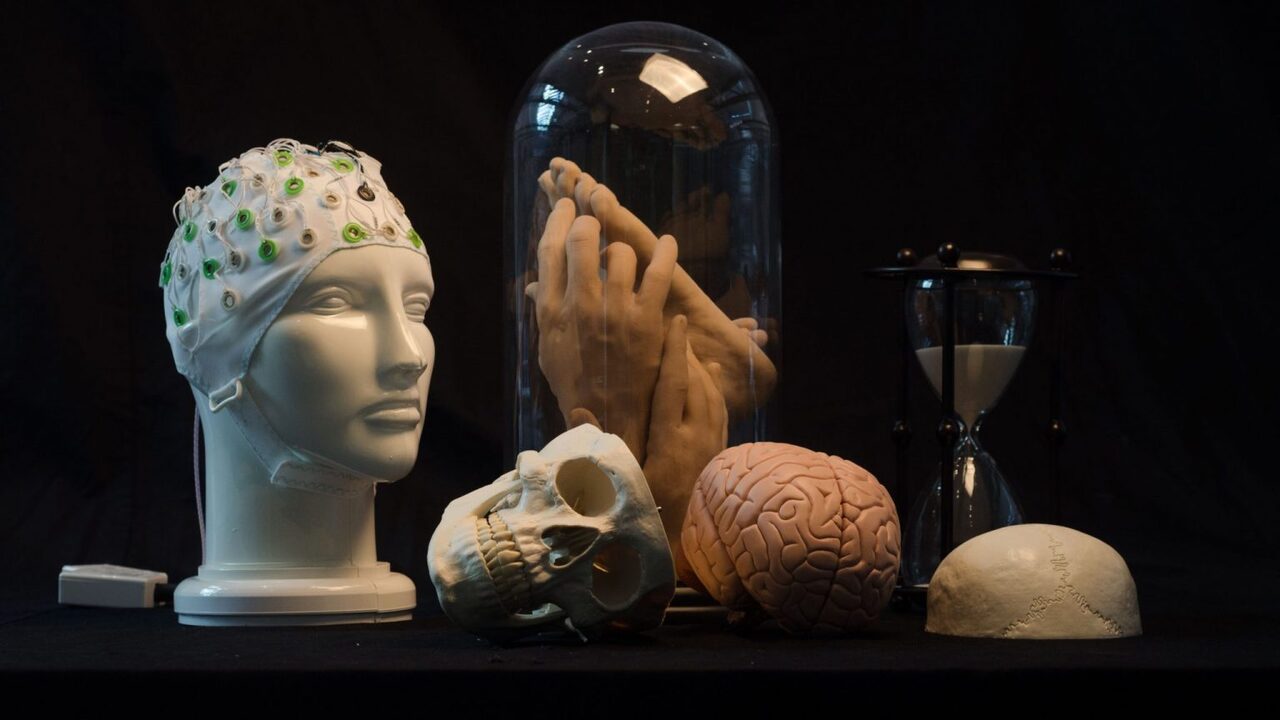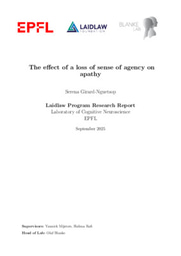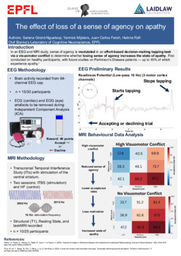Motivation and Control: Investigating the link between Agency and Apathy

If you felt like you had no control over your own actions, would you still be motivated to take any?
This is the central question behind the research I’ve been working on during my internship this summer with the Laboratory of Cognitive Neuroscience (LNCO) at EPFL’s Campus Biotech in Geneva.
More precisely, the research question is: How can the loss of a sense of agency influence apathy?
Both ‘agency’ and ‘apathy’ are terms that you might be familiar with in a colloquial sense, but not necessarily in a scientific sense.
In the framework of cognitive neuroscience, we can define agency as the feeling that one’s voluntary actions lead to a predictable outcome. When we no longer feel control over our actions, such as what Parkinson’s disease patients might feel because of their akinesia, we may experience a loss of agency.
Apathy can be defined as a reduction in goal-directed behaviour. It’s associated with poorer health outcomes, as people suffering from apathy may not have sufficient motivation to take their medicine on time or be consistent with a treatment program.
When I joined this research project, it surprised me to learn that apathy is a symptom of a multitude of different neurological disorders, including Parkinson’s disease, Alzheimer’s disease, schizophrenia, and depression. In Parkinson’s alone, about 40% of patients experience apathy.
Despite its prevalence and correlation with the progression of neurodegenerative diseases, apathy currently lacks an effective treatment.
The goal of this investigation is to understand the brain mechanisms behind apathy, establish a link between our sense of agency and apathy, and observe whether stimulation of the ventral striatum — a subcortical region of the brain associated with motivation — can help modulate motivation, and potentially act as a non-invasive treatment for apathy.
Our research will be conducted with three different experimental methods: (i) a remote, online behavioural study, (ii) an MRI experiment with transcranial temporal interference stimulation (tTis) of the ventral striatum via electrodes, and (iii) an EEG experiment with 64 electrodes measuring brain activity. In each, participants will complete an interactive, effort-based decision-making task wherein we will manipulate their sense of agency, and we will assess their apathy levels through brain imaging and periodic questionnaires.
Our studies will include two different groups of participants: healthy individuals and individuals with Parkinson’s disease.
Parkinson’s is the second most prevalent neurodegenerative disease worldwide, and it has no existing cure. Since apathy is one of its symptoms, and a loss of agency is a characteristic component of the disease, investigating how these components interact within the context of Parkinson’s could provide deeper insight into the disease.
Ultimately, a large element of living a fulfilling life is the capacity to carry out the goals we set for ourselves. For an apathetic person, even something as seemingly “simple” as drinking a glass of water of their own accord can feel unattainable.
Apathy’s intersection and similarity to other neurological symptoms can make it difficult to study in isolation. In fact, we used to misrepresent the apathy observed in Parkinson’s disease for depression.
Ideally, by conducting our studies on healthy participants alongside Parkinson’s patients, this study can help us better identify the unique circuitry of apathy and could lead to more tailored treatments for it in the future.
References:
Le Heron, C., Holroyd, C. B., Salamone, J., & Husain, M. (2018). Brain mechanisms underlying apathy. Journal of Neurology, Neurosurgery & Psychiatry, 90(3), 302–312. https://doi.org/10.1136/jnnp-2018-318265
Haggard, P. (2017). Sense of agency in the human brain. Nature Reviews Neuroscience, 18(4), 196–207. https://doi.org/10.1038/nrn.2017.14
Maher, S., Donlon, E., Mullane, G., Walsh, R., Lynch, T., & Fearon, C. (2024). Treatment of Apathy in Parkinson’s Disease and Implications for Underlying Pathophysiology. Journal of Clinical Medicine, 13(8), 2216–2216. https://doi.org/10.3390/jcm13082216


Please sign in
If you are a registered user on Laidlaw Scholars Network, please sign in
Great article Serena! Looking forward to see the results of your experiment!